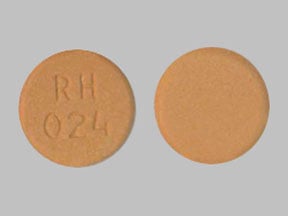
Tums Coupons & Savings Card – Discount Prices from $3.90
Brand for: Calcium carbonate antacid
My prescription
Edit
500MG, Calcium Carbonate Antacid (30 Tablet Chewables)
Select pharmacy

Albertsons
$3.90
COUPON PRICE
Walgreens
$3.90
COUPON PRICE
Walmart
$10.61
COUPON PRICETums savings card
Show this card to your pharmacist
Albertsons
$3.90
BIN
ID
PCN
GRP
011867
LH17D7C7BD
HT
LABH001
Powered by
Related alkalinizing agents prescriptions
More prescriptions for heartburn
Related alkalinizing agents prescriptions
More prescriptions for heartburn
Tums (Calcium Carbonate Antacid) dosage forms
Dosage Quantity Price from Per unit 500MG 30 Tablet Chewables $7.58 $0.25 500MG 1 Tablet Chewable $7.50 $7.50 500MG 150 Tablet Chewables $7.91 $0.05 500MG 500 Tablet Chewables $8.88 $0.02
| Dosage | Quantity | Price from | Per unit |
|---|---|---|---|
| 500MG | 30 Tablet Chewables | $7.58 | $0.25 |
| 500MG | 1 Tablet Chewable | $7.50 | $7.50 |
| 500MG | 150 Tablet Chewables | $7.91 | $0.05 |
| 500MG | 500 Tablet Chewables | $8.88 | $0.02 |
What exactly does Tums do?
Tums is an over-the-counter antacid that helps neutralize stomach acid. It is commonly used to relieve symptoms of heartburn, acid indigestion, and upset stomach. Tums contains calcium carbonate, which works by increasing the pH balance in the stomach, thereby reducing acidity and providing relief from discomfort.
Is Tums the same as Pepto Bismol?
Tums and Pepto-Bismol are not the same. Tums contains calcium carbonate and is primarily used as an antacid to relieve heartburn and indigestion. Pepto-Bismol contains bismuth subsalicylate and is used to treat upset stomach, nausea, diarrhea, and other digestive issues. They have different active ingredients and are used for different symptoms.
Are Tums safe for your heart?
Tums are generally considered safe for the heart when used as directed. They are primarily used to relieve heartburn and indigestion by neutralizing stomach acid. However, individuals with certain heart conditions or those on specific medications should consult a healthcare provider before using Tums, as they contain calcium, which can interact with some medications or affect certain heart conditions.
How quickly does Tums work?
Tums typically begins to work within a few minutes after ingestion. It provides rapid relief from heartburn and indigestion by neutralizing stomach acid.
Should I drink water after taking Tums?
It is generally recommended to drink a glass of water after taking Tums. This can help the tablet dissolve more effectively and aid in the relief of symptoms. However, it is always best to follow the specific instructions provided on the medication packaging or by a healthcare provider.
